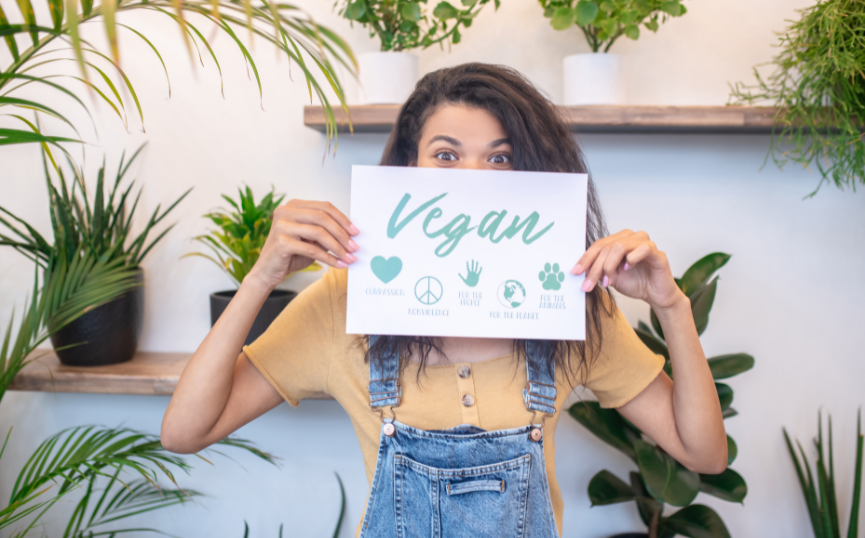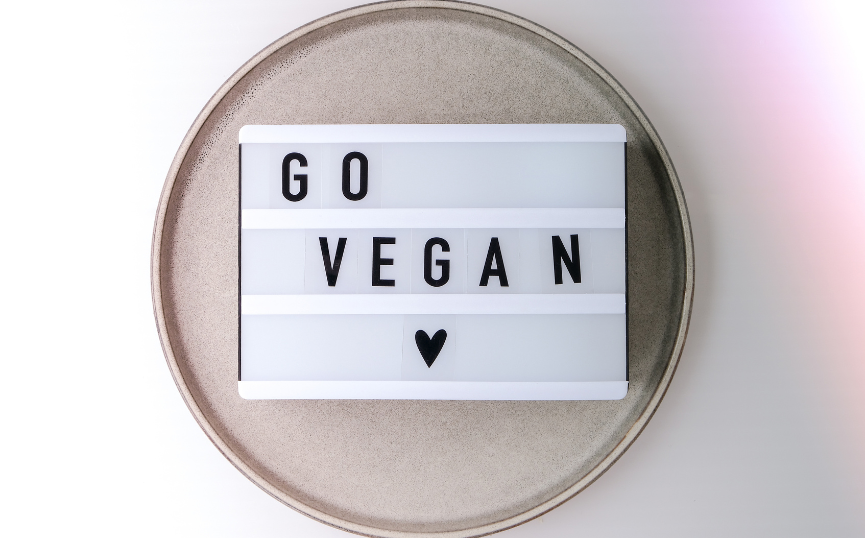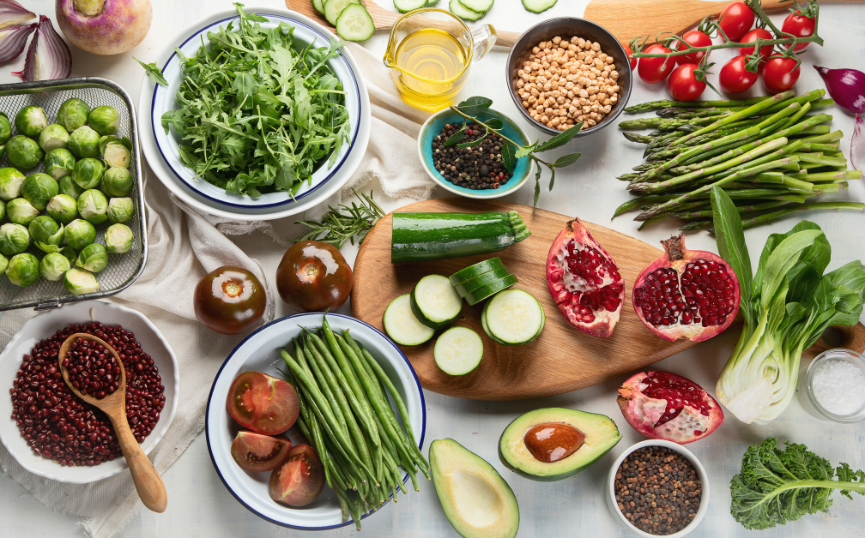Veganism
Vegetarian and vegan diets are experiencing a renaissance. If you're interested in veganism and want to change your diet, but haven't yet had the courage to start, read on to find out what to look out for and how to make the change in your lifestyle!

A trend or a lifestyle?
More and more people are switching to a vegetarian diet, and food companies are responding. More and more vegan products are being stocked in shops, the internet is full of vegan recipes, and most places now offer vegetarian options, in addition the number of vegan restaurants and cafés opening up across the country are growing. There are many forms of vegetarianism, and this article will focus on veganism.
Why are we changing our lifestyle?
People who follow a vegan diet eliminate all foods of animal origin (meat, fish, eggs, dairy, honey, etc.) from their diet. The motivations for making the switch are usually complex, several factors motivate people to commit to a new diet. Most people change their eating habits for health, ethical, animal welfare and environmental reasons. It's no wonder, since many studies have shown the positive effects of whole plant foods on the body and the environment. One study this year, which looked at the environmental impact of 4 different diets, found that a vegan diet significantly reduces our individual ecological footprint and the environmental damage caused by diet.
People following a whole-food plant-based diet can expect a number of positive effects. They are less likely to be obese and have a reduced risk of developing diseases such as heart problems and high blood pressure, chronic diseases, type 2 diabetes and cancers. Not to mention that, in general, vegetarian and vegan diets have a much higher intake of vitamins, minerals and fibre. Of course, these positive effects can be achieved by maintaining a conscious and balanced diet and by taking into account other important factors such as regular exercise, getting enough sleep, avoiding smoking and alcohol consumption.

How to change?
As with any change in diet, it is important to be gradual when switching to a vegan diet. Many people exclude the usual ingredients from their diet from one day to the next, but they do not pay attention to replacing them with suitable plant alternatives. Drastic change often has more disadvantages than positive effects. ust think about, these days the shelves of supermarkets are full of ultra-processed vegan alternatives that are claimed to be healthy. Vegan chocolates, crisps, biscuits, pastries, microwave meals, etc. are now easily available. Of course, if you are changing your lifestyle for health reasons you are likely to skip these foods, but it is important to make it clear that just because something is vegan does not mean it is healthy or better than its dairy/butter counterparts.
As with people on a mixed diet, a balanced diet is very important for vegans. Although all the essential nutrients can be obtained from a complete vegetarian diet, some vitamins, such as B12, can be difficult to obtain from plant foods. Minerals are less available from plant foods, and omega-3 intake should also be taken into account. In addition to a balanced and varied diet, we should therefore pay close attention to avoid deficiencies. This is where Vitamin360's range of vegan products can help you. Our website now has a vegan products sub-page where we've collected our vegan products for you, so you can easily find the right supplements for your dietary preferences with just a few clicks.

What should I look out for as a vegan?
As mentioned above, the intake of certain nutrients on a vegan diet needs to be carefully monitored. Iron and zinc in their plant form are more difficult to absorb by the body, so we need to consume more of them to ensure adequate intake. Not eating fish also lowers our intake of omega-3 fatty acids. It is also worth paying special attention to the replacement of vitamin B-12. Let's look at the nutrients that need to be taken into account.
Vitamin B12 is essential for blood formation and energy-producing processes. As a vegan, it is especially important to pay attention to your intake, as we consider meat and animal products to be reliable sources. To avoid deficiencies, it is advisable to take a vitamin supplement to ensure you get the necessary amount.
Iron is an important mineral that plays an important role in oxygen transport in red blood cells. It can be found in leafy vegetables, oilseeds, pulses and cereals, but as mentioned above, its absorption from plant foods is not as efficient.
Zinc is a constituent of more than 300 enzymes and is an excellent antioxidant, protecting against free radicals that damage cells. Plant sources include almonds, mushrooms, legumes and whole grains.
Calcium is important for muscle function, contributes to brain function, plays a role in blood clotting and helps wound healing. Poppy seeds, peanuts, almonds and soya are high in calcium, but it is worth supplementing with dairy products from outside sources.
Omega-3 fatty acid intake is reduced by not eating fish. Found naturally in flaxseed, chia seeds and walnuts. However, it is difficult to obtain the necessary amounts from food, so supplementation is recommended.
Finally, it's also worth paying attention to your vitamin D intake, especially in the winter months when you don't get enough sunlight.



